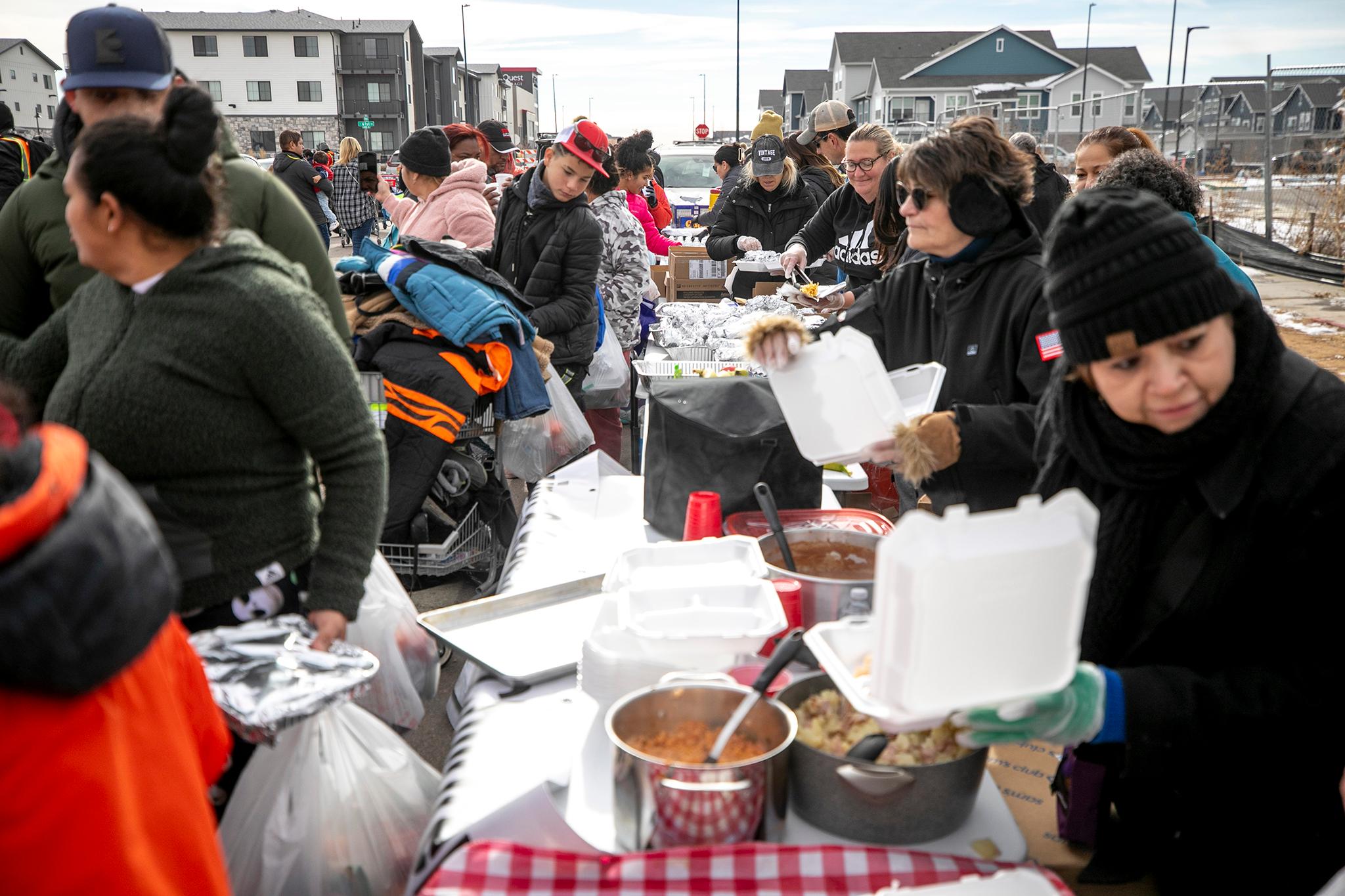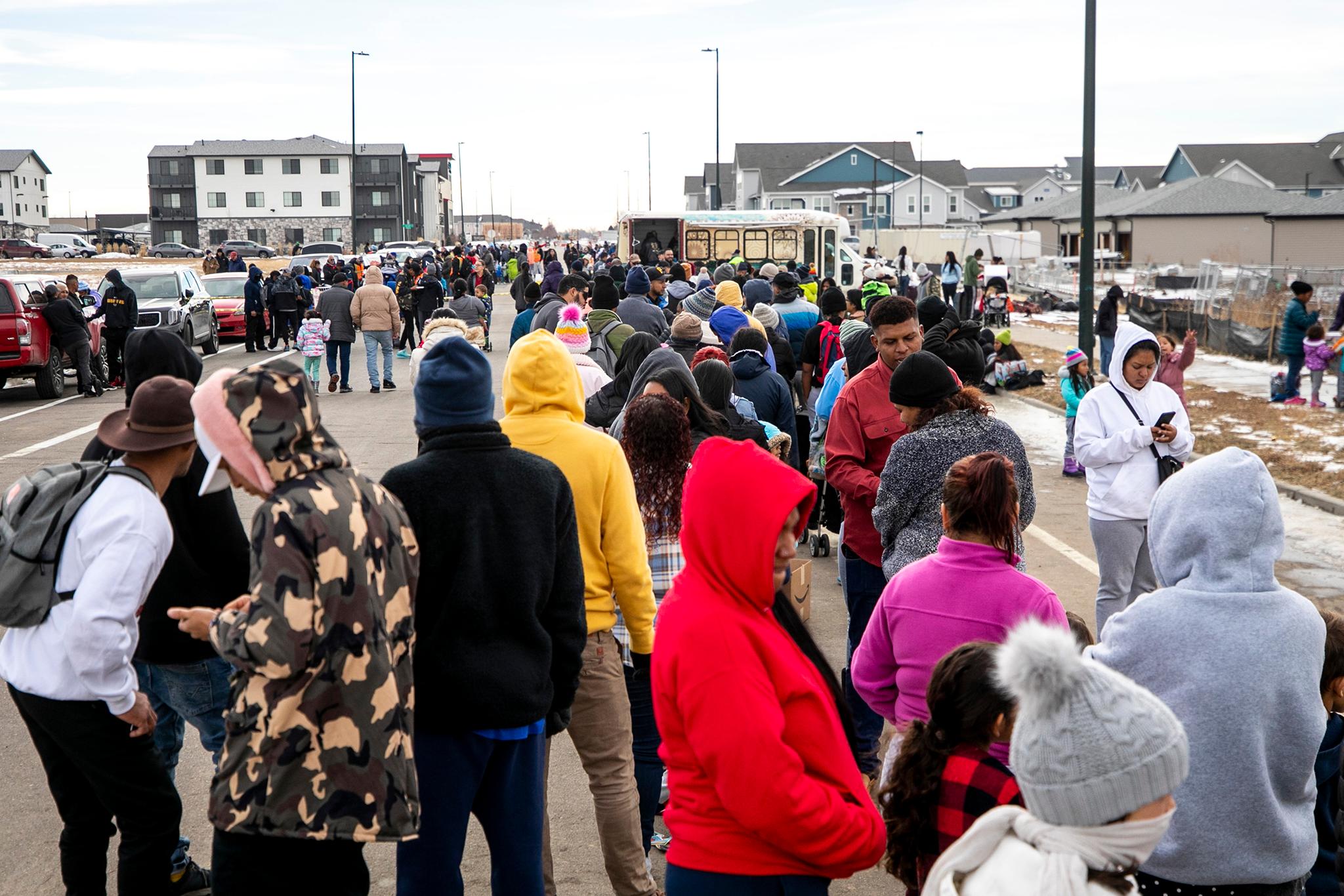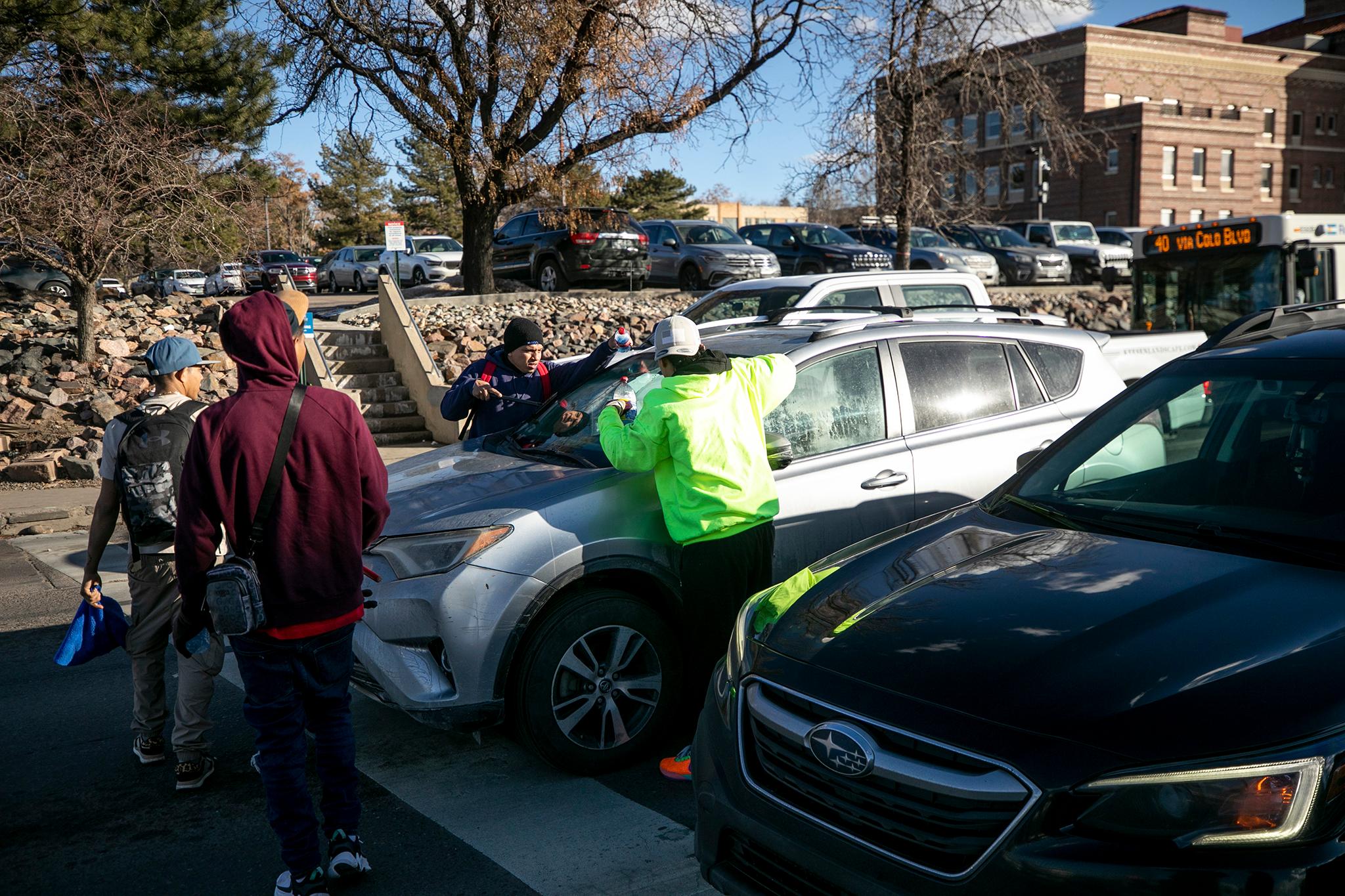Asking for handouts and offering to wash windshields for cash isn't the dream for families and individuals who have arrived in Denver from the border over the past year.
Most of the new Venezuelan migrants Denverite has spoken to say they want jobs and don't want to rely on the City of Denver, which has spent more than $40 million supporting them.
But because federal law bars many of the new arrivals and immigrants without legal status from working without authorization, asking for a cash handout is one of the few ways they can raise money to pay for rent, clothes, food and other basic necessities while struggling to afford life in Denver and beyond.
So families stand on the corners. Young people at road medians offer to clean windshields with squeegees. Sometimes people offer them a buck or two for the service. Other times, drivers chew them out. But the newcomers show up anyhow, even in the cold, to work as they can. And they try their best to figure out how to make money, hoping to live within the law.
Many in the community also want them to work. The mayor wants them to work. Employers want them to work.
So what gives? Denverites are understandably baffled.
Why can't new arrivals get work permits? asked reader Kathy A. What's the hold up?
"I don't understand why the migrant crisis is a crisis at all," asked Ryan D. "Why can't they just be given work permits to earn their own keep?"
We asked immigration attorney Laura L. Lichter, who has been in the field going on 30 years, for answers.
To lawfully work in the United States, a person has to be a U.S. citizen, a legal permanent resident or have work authorization.
"No employer is supposed to hire anyone if they don't fit into one of those categories if they can't prove that they're legally able to work," Lichter said.
So what does a new migrant -- from Venezuela or elsewhere -- without government permission to work do? These are some of the ways they can become eligible.
Parole
President Joe Biden's administration has opened some lawful pathways to work for people entering the country and fleeing persecution or trying to connect with family, Lichter explained. People are required to present themselves at a port of entry, at a border inspection station or by registering through the CBP One App put out by Customs and Border Protection.
Many of those who enter through that system are paroled into the country and become eligible for work authorization as long as that parole status is valid. The Biden Administration announced last September it would expedite work permits for some migrants who were paroled into the country after using the CBP One App to be screened at the border.
"If you're here on parole in that program, most people are eligible to apply for a work permit," Lichter explained. "And that work permit is going to cost you about $495, once all of the fees are added up."
For many people, applying takes a long time. The application is in English only and many of the new arrivals speak only Spanish. The instructions for the work authorization application alone are 27 pages long, and the document can be intimidating.
After people get settled in, they need to raise funds for filing fees, find solid advice from an attorney and avoid the many scammers preying on vulnerable newcomers. The people must then fill out the form and send it in the mail to United States Citizenship and Immigration Services (USCIS), the federal agency that processes such applications.
Asylum
Migrants interested in requesting asylum must do so within their first year of arriving in the U.S., and they might end up waiting months and months before being able to put together their applications and filing fees.
Those who do file claims for asylum are not eligible to apply for a work permit until their application has been pending for 150 days, according to USCIS.
"Until that time, they're legally not able to work," Lichter said. While that's a long time to be without a salary, it's "pretty fast for immigration."
But sometimes things don't go right. Scammers can lead people astray. Well-intentioned residents unwillingly litter applications with mistakes. People rush and make errors while filling out forms.
"There's a learning curve here," Lichter said. "You need to know what application to file, and where to file it. A lot of people are relying on friends or family to help them through the process. Or maybe they're going to immigration consultants. And to be honest, you know, those aren't lawyers. And they don't always know what they're doing. And they don't always put everything down correctly. And they can cause some real problems for people."
Put simply, Lichter said, if you don't have legal experience, you shouldn't be filling out forms for anyone no matter how much you want to help.
Temporary Protected Status for Venezuelans
Some Venezuelan migrants are applying for Temporary Protected Status which makes them eligible for work permits, but that can come with long wait times. TPS gives people temporary haven from an armed conflict, an environmental catastrophe or other temporary or extraordinary hardships.
Currently, the Biden Administration is offering TPS to Venezuelans through April 2, 2025, but not all arrivals are eligible. Only Venezuelans who were living in the United States before July 31, 2023 can apply. Migrants who arrived after that date are not eligible.

Those who receive the status or are found eligible after an early review of their cases can receive an employment authorization document.
According to USCIS, the current average waiting time for a response to applications for Temporary Protected Status is roughly six months, though that can vary based on the complexity of the case.
Fifteen other countries currently have TPS designation, however, more recent arrivals from those countries may not be eligible for the status based on the date of their arrival in the U.S.
Most of Lichter's clients tell her they want to follow the rules and don't want to be sent to their home countries.
Many are fleeing from severe economic instability, violence or political prosecution, and staying here, even without work or a home, feels safer than returning.
People without work authorization and no money are in a bind. Without money and a job, how are they supposed to pay for food, shelter and clothes? How can they put the basics together to support their families? How can they even begin to save up to pay for permission to work?
Filling out job applications and working with a fake Social Security number is illegal and could have future repercussions for anyone who does it.
The law, Lichter says, is convoluted. While she's heartened to see USCIS try to make the process more accessible, for many the rules don't make sense.
"And you can't just go to a government website and get legal advice," she said.

There are nonprofits and community legal clinics, but the demand in Denver has outpaced the services.
"In the last 25 years, all we've done is make it more and more difficult for people to get from point A to point B. Even if they're good people. Even if they have no criminal history. Even if they have businesses here, they have family here," Lichter said. "We just make it harder and harder and harder. And the reason there's 12 million people in the country who are undocumented is because we don't have a path to get from A to B for most of them."
As Lichter sees it, making the process of working legally easier is good for everybody.
Without permits, people are likely to work under-the-table jobs for sub-minimum wages and face a higher likelihood of abuse, extortion and wage theft, she said.
"Part of it is just the recognition that at some point in time, someone's just going to have to do something in exchange for money so they can put a roof over their head or put some food in their stomach," she said. "And it's better for everyone if workers have work permits, because then they won't get exploited."














